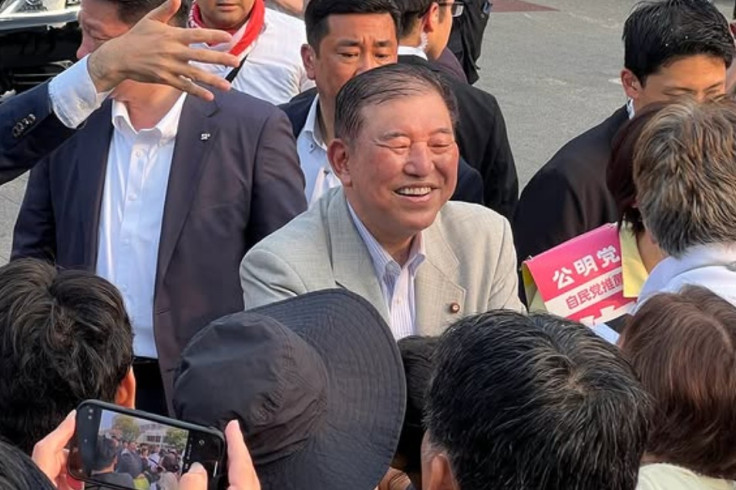Japan PM Shigeru Ishiba Resigns After Crushing Defeat and Gift Scandal Fallout
Ishiba's sudden resignation sets off a leadership race within the Liberal Democratic Party as Japan faces mounting economic strains and security challenges.

Japan's Prime Minister Shigeru Ishiba announced today that he will resign, bowing to pressure after crushing election defeats left his ruling Liberal Democratic Party (LDP) fractured and vulnerable.
Speaking to public broadcaster NHK, Ishiba said he would step aside to preserve party unity and avert a deeper political crisis. A formal press conference is expected later in the day.
Electoral Setbacks Weaken the Liberal Democratic Party
Ishiba's downfall was triggered by consecutive election losses that undermined both his leadership and the LDP's dominance.
In the October 2024 general election, the LDP–Komeito coalition lost its majority in the House of Representatives, forcing Ishiba to govern with a minority administration. The situation worsened in July 2025 when the coalition suffered another defeat in the House of Councillors.
The result marked the first time in decades that the ruling bloc lost control of both chambers of the National Diet. Public confidence in Ishiba's leadership declined rapidly, with approval ratings dropping to around 23% after the Upper House setback.
The defeats amplified pressure within the party and signalled growing discontent among voters.
Senior Party Figures Press Ishiba to Quit
Growing rifts within the LDP made Ishiba's position increasingly untenable. Senior members, including influential lawmaker Shinjirō Koizumi, urged him to step aside to prevent further division.
Party insiders warned that extending his leadership risked deepening internal fractures at a time when the opposition was gaining momentum.
Ishiba, who entered office in September 2024 after winning the LDP leadership contest, framed his resignation as a move to safeguard the party's future.
His departure highlights the extent of factional tension within the ruling camp and the urgency to stabilise Japan's political landscape.
Gift Scandal Damages Ishiba's Credibility
Alongside electoral setbacks, Ishiba's administration was tarnished by a political funds scandal earlier in 2025.
His office distributed gift certificates worth approximately ¥100,000 ($680 or £500) each to newly elected LDP lawmakers.
The move drew widespread criticism and raised questions about possible violations of political funding laws.
Although the controversy was not the sole cause of his resignation, it further eroded Ishiba's credibility and added to the perception of an embattled administration.
Analysts noted that the scandal fuelled opposition attacks and weakened the Prime Minister's standing within his own party.
Leadership Race Begins Amid Political Uncertainty
With Ishiba stepping down, attention now turns to the race for LDP leadership and the next prime minister.
Sanae Takaichi, a former internal affairs minister, and Shinjirō Koizumi, the former environment minister, are among the early favourites to succeed him.
Other names, including Defence Minister Minoru Kihara and former foreign minister Fumio Kishida, are also being mentioned as potential contenders.
The leadership contest is expected to be fast-tracked as the ruling party seeks to restore stability.
The resignation comes at a sensitive time for Japan, which is grappling with economic challenges, demographic pressures and regional security concerns.
Ishiba's abrupt exit leaves the LDP facing a critical test of unity and raises fresh questions about the country's political direction, particularly as opposition parties push to capitalise on the government's weakened standing.
© Copyright IBTimes 2025. All rights reserved.





















